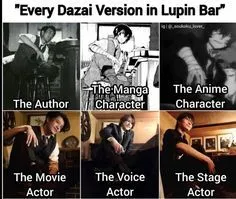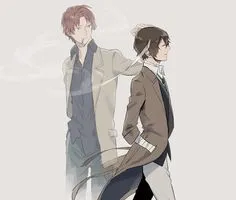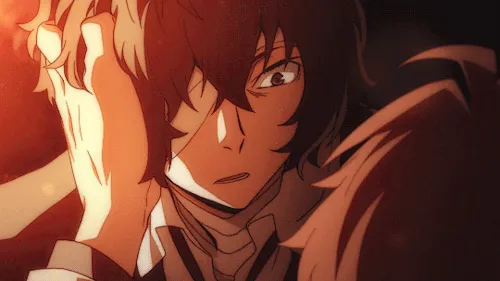The Bungo Stray Dogs series has captivated audiences with its unique blend of literary figures reimagined as super-powered detectives and mafiosos. Among its various adaptations, the light novels stand out, offering crucial insights and expanding the lore. This review delves into one such pivotal entry, providing a comprehensive analysis of a key bungo stray dogs novel that illuminates the enigmatic character of Osamu Dazai and the profound relationships that shaped his path. This particular novel serves as an essential bridge, connecting the dots of Dazai’s past and providing context for his motivations within the Armed Detective Agency, making it a must-read for fans seeking to truly understand the acclaimed series.
The narrative of this bungo stray dogs novel is set two years prior to the events depicted in the main manga series, offering a stark contrast to the present-day adventures. It meticulously details Dazai’s turbulent tenure within the Port Mafia, shedding light on the darkness and philosophical turmoil he endured before his eventual defection. This period is not merely a backdrop; it is the crucible in which Dazai’s character is forged, revealing the complex layers beneath his usual flamboyant and suicidal tendencies. The novel excels in portraying the sheer depth of his internal struggles, showcasing a younger, more vulnerable Dazai grappling with the nihilism that defines his early life. The story introduces readers to some of the purest and most impactful characters in the series, particularly Sakunosuke Oda, whose presence profoundly influences Dazai’s journey towards finding a purpose beyond destruction and despair.
The inspiration for this compelling storyline is rooted in real-world history, drawing from a photograph of the actual literary figures Osamu Dazai, Sakunosuke Oda, and Ango Sakaguchi, who frequently met at a bar. This historical context adds a layer of authenticity to the fictional narrative, grounding the fantastical elements in a relatable human connection. The author, Kafka Asagiri, masterfully crafts a tale that, unlike many contemporary narratives, deliberately eschews romance as a central plot device or subplot. This creative choice is particularly refreshing, allowing the story to explore themes of purpose and existential meaning with an unadulterated focus. The quest for a raison d’etre is a deeply personal and universal struggle, and the novel’s commitment to exploring this theme without the easy crutch of romantic entanglements resonates powerfully with readers.
A Deep Dive into Character Dynamics and Existential Themes
This installment of the bungo stray dogs novel offers an unparalleled exploration of Dazai’s psyche and his profound bonds with Oda and Ango. Oda’s poignant observation that Dazai was merely “a child left in the dark for too long” perfectly encapsulates the core of Dazai’s complex character during his formative years in the Mafia. At only seventeen or eighteen, Dazai’s actions and philosophical musings reveal a genius tormented by an inability to find meaning in life, leading him down a path of self-destructive inquiry. His relationship with Oda is particularly crucial; it is through Oda’s unique understanding and unwavering advice that Dazai begins to see a glimmer of hope. This dynamic is underscored by a pivotal scene where Oda’s counsel resonates deeply with Dazai, suggesting that Oda is perhaps the only person who truly comprehends the depths of his being. The intensity of this connection makes Dazai’s anguish at Oda’s impending death all the more palpable, revealing a lost and lonely side of him rarely seen. The bond they share transcends mere friendship, delving into a profound intellectual and emotional symbiosis.
The novel also poignantly explores Oda’s own journey and his reasons for abandoning a life of killing, a decision that deeply touches the heart. His search for a purpose, initially tied to his adopted orphans, becomes tragically unfulfilled when they are lost, leaving him in a state of profound despair. This parallel struggle for meaning between Dazai and Oda forms the emotional core of the bungo stray dogs novel, highlighting the shared human desire to find something worth living for.
 Dazai, Oda, and Ango meeting at a bar, a scene central to the novel's inspiration
Dazai, Oda, and Ango meeting at a bar, a scene central to the novel's inspiration
Among the many powerful dialogues and internal monologues within the novel, several quotes stand out for their ability to encapsulate the characters’ philosophies and emotional states. One particularly striking exchange involves Dazai’s surprising query: “You hurt yourself on a block of tofu?” This seemingly innocuous question, followed by a witty remark about calcium, highlights Dazai’s characteristic blend of sharp intellect and dark humor, even in dire circumstances. Such moments provide brief reprieves from the pervasive existential dread, showcasing the unique personalities that populate this dark world. The author skillfully uses these snippets of dialogue to reveal character without explicit exposition, allowing readers to infer the intricate thought processes of these complex individuals.
Another profound conversation occurs when Dazai implores Oda, “Forgive me for the absurd wording, but—don’t go. Find something to rely on. Expect good things to happen from here on out. There’s gotta be something… Hey, Odasaku, do you know why I joined the Mafia?” This raw outpouring reveals Dazai’s desperation and his own lifelong quest for a reason to exist. He confesses his belief that proximity to death, violence, and raw human urges might unveil the true nature of humankind, thereby providing him with a purpose. This introspection is critical for understanding Dazai’s seemingly contradictory nature. It exposes the profound intellectual curiosity and existential yearning that drive him, far beyond simple destructive impulses. His journey to find meaning is a central pillar of this light novel bungo stray dogs. light novel bungo stray dogs
 A panel showing Dazai's deep reflection on his purpose and motivations
A panel showing Dazai's deep reflection on his purpose and motivations
Oda’s response to Dazai’s confession is equally impactful and serves as a moral compass for the struggling protagonist. “I wanted to be a novelist,” Oda states, explaining his refusal to kill during missions as an attempt to preserve his worthiness for such a life. This revelation from Oda underscores his inherent goodness and his dedication to a path of creation rather than destruction. However, the tragedy of his circumstances ultimately forces him to concede that his past desires are “all in the past,” replaced by a singular, desperate wish. This deep conversation is a turning point, not only for Oda but for Dazai as well, as he begins to perceive a different way of living through his friend’s example.
The Pivotal Advice and Dazai’s Transformation
The climax of their philosophical exchange arrives when Dazai realizes the profound depth of Oda’s understanding. “That was when Dazai first realized: Sakunosuke Oda understood him much more than he’d ever imagined—right up to his very heart, almost to the center of his mind. Dazai didn’t realize until then that someone had known him so well.” This moment of recognition is powerful, as it signifies Dazai’s first genuine desire to understand something from the depths of his soul. His vulnerable question, “Odasaku… What should I do?” is a plea for guidance, a rare display of humility from a character usually brimming with self-assured nihilism. This interaction lays the groundwork for the transformative events that follow in the bungo stray dogs vol 2. bungo stray dogs vol 2
 Odasaku offering crucial advice to Dazai, a turning point in Dazai's life
Odasaku offering crucial advice to Dazai, a turning point in Dazai's life
Oda’s final advice to Dazai is arguably the most significant dialogue in the entire bungo stray dogs novel. “Be on the side that saves people,” Oda replies. “If both sides are the same, then choose to become a good person. Save the weak, protect the orphaned. You might not see a great difference between right and wrong, but…saving others is something just a bit more wonderful.” This profound counsel, delivered with the certainty of someone who has experienced both extremes of human nature, becomes the catalyst for Dazai’s eventual departure from the Port Mafia and his subsequent dedication to the Armed Detective Agency. Oda’s words provide Dazai with the “reason to live” he had so desperately sought, a purpose rooted in protecting others rather than succumbing to the inherent meaninglessness he once perceived. This moment is not just a plot point; it is the philosophical core of Dazai’s entire character arc.
The bungo stray dogs novel detailed here is an indispensable piece of the series’ puzzle. It doesn’t just fill in gaps; it enriches the understanding of its most complex character, Osamu Dazai, and the tragic yet inspiring journey of Sakunosuke Oda. Through its exploration of profound philosophical questions surrounding purpose, morality, and human connection, the novel provides a compelling narrative that stands strong on its own while also deepening the appreciation for the entire Bungo Stray Dogs universe. For fans eager to delve into the intricate motivations and character developments that underpin the popular manga and anime, this light novel is not just recommended, it is essential reading. Immerse yourself in the dark past of Dazai and witness the pivotal moments that shaped him into the enigmatic detective we know today.
